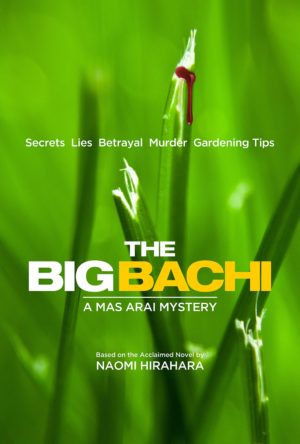As a programmer at the Japanese American National Museum, I have been on the front lines of Asian American culture for more than a decade. That’s why when Fresh Off the Boat came out on ABC, we were excited and proud to host some community screenings. It was exciting to see a cast of talented and amazing Asian American actors on network television. But what was more exciting—at least for me—was to see how thrilled other Asian Americans were about it too.
But what disheartened me was the fact that many Asian Americans complained that there had been no other since Better Luck Tomorrow. But of course they were wrong. Lots of people had done lots of things—including me. They just hadn’t bothered to find out what.
As a content creator, this is the heart of the problem. We—as a people—need to support our projects. I know you’ve heard it all before, but I mean it. We need to buy our books, watch our movies, go to our film festivals, consume our television, etc. Because if we aren’t willing to consume our stories, then who is?
I think I’m in the minority on this, but I really believe—maybe it’s hope—that Hollywood is not racist. They are a business, trying to make money. If they thought Asian Americans would buy Asian American movies or other content, I truly believe they would produce more.
This isn’t a secret but every aspect of an Asian American movie is challenging. It’s hard to get funding. And if somehow you manage to get some money to make the movie, it’s hard to get into “mainstream” festivals and then to get any kind of distribution. Don’t even think about selling internationally.
I admit that after making two Asian American films—The People I’ve Slept With and #1 Serial Killer—I was exhausted. I wondered if I should bother to make another one. My wife called what I was doing “volunteering.” But what turned my thinking around was my toddler. I asked myself which projects of mine I would talk to my toddler twenty years from now. The answer surprised me. I realized it was my Asian American projects. Why? Because I was making stories about people like my son—even when no one else wanted to.
This brings me to The Big Bachi, my third Asian American film as a producer and the first that I didn’t write (It was written by the talented Mark Tasaka).
Here’s a quick synopsis of the film:
Mas Arai, a Japanese American gardener and Hiroshima bomb survivor, finds himself in the middle of a murder, a shady land deal, a powerful and ruthless corporation, a crooked private investigator, racist cops, and the return of a supposedly-dead childhood friend. All of this leads Mas back to Hiroshima. Mas will have to confront his own secrets about what really happened on that horrific day.
On the surface, it should be the kind of book that movie studios should all be clamoring for. Author Naomi Hirahara’s Mas Arai book series has sold over a one hundred thousand copies, there are a whole heap of loyal—re: rabid—fans, and this doesn’t even mention the fact that the stories are interesting and fun. But the reason Naomi’s books aren’t being turned into movies is because they feature a lead character that is not only elderly but also Japanese American. Neither are exactly the kind of characters studios are looking to make.
I was drawn to this project first and foremost because I love Naomi’s books and specifically the Mas Arai series. Because frankly, I think it’s fun reading about an elderly Japanese American man becoming a detective—maybe this is something I can do myself when I grow old? But I became involved also because I think these are the kinds of stories that need to be told and if we—as Asian Americans—aren’t willing to do it, once again, who will?
Find out more about how you can support the Big Bachi HERE.
Follow me at @ksakai1.









